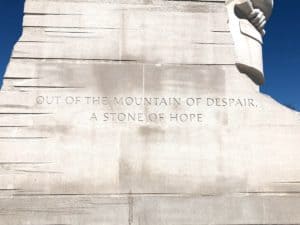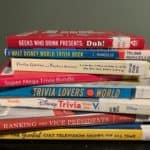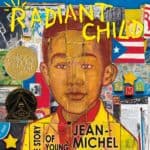
29
AprIt’s Okay to Not Be Okay
 “Good times, bad times, you know I’ve had my share.”
“Good times, bad times, you know I’ve had my share.”
When Robert Plant sang those words on the opening track of the self-titled Led Zeppelin album first released in 1969 he could not have imagined anything like the past 14 months we’ve all had to endure, living through this COVID-19 pandemic. Plant, Page, Jones and Bonham were clearly borrowing from a rich blues tradition, and I often take heart in the sentiment in the classic song, “Born Under a Bad Sign,” that Albert King famously recorded in 1967, just two years before the Zeppelin Bad Times. “If it wasn’t for bad luck, I wouldn’t have no luck at all.”
How do we get through hard times? We start by recognizing that times are indeed hard. It is popular to put on a brave face and always answer the question “How are you doing?” with “I’m good, how are you?” and never expect anything less than positive in reply. But things are not always good. We all know this. You certainly don’t need me to remind you. What I want to encourage you to do is make sure to deeply listen to yourself and treat yourself kindly. Then extend this kindness to the people closest to you – your partner, your kids, your parents, those people who know the real you. Listening closely is how we develop deep empathy for each other, which is essential to our collective survival as a species.
I didn’t start with advising you to be kind to strangers and animals. Of course you should do that too. But as my father regularly reminded me, puppies are cute for a reason, it’s nature’s way to make sure they get taken care of to become grown dogs. It can be harder to be kind to grown adults you don’t know, but I think it is even harder to be kind to ourselves and those closest to us, because our expectations are so much higher. That’s why it is so important to live the reality that it is okay to not be okay. It is okay to not always succeed. Bonnie St. John shared a wise realization she gained competing at the highest level: “(P)eople fall down, winners get up, and gold medal winners just get up faster.” Studies of healthy communities highlight the importance of resiliency (see Eric Kilenberg’s Palaces for the People, published in October, 2020, for an in depth study of how libraries play a part).
Often the hardest part about getting up is figuring out where to start. Of course, it depends on where you are. Always dial 911 during an emergency. The National Suicide Prevention Lifeline provides 24/7, free and confidential support for people in distress, prevention and crisis resources for you or your loved ones, and best practices for professionals. Their number is 800-273-TALK (8255). Not sure if you are that low? If you’re unsure, please pick up a phone and call. It is much better to call early. It can be amazing how low our lowest moment can be and you don’t have to explore these depths alone. Would you rather text with someone? Text 741741. You can simply say “I’m not okay” and a volunteer counselor, who is supervised by a licensed, trained mental health professional, will be right there to personally help you.
The library is also here for you. None of us are alone. We may feel alone and isolated, and indeed we may physically be more isolated than ever before in our lives, but here at the library we can help you research and connect with practicing professionals and peer support groups that are completely qualified to help. We place enormous value in confidentiality so you can conduct any research you need to do without any fear of anyone else finding out. There is no shame in taking care of yourself and others, but at the library only you get to choose how public you are with that process, not anyone else. We also have lots and lots of books, videos, and more we can help you discover to accompany you on your journey. We can help provide some escape from the daily trials and tribulations of modern life, and we have experts waiting to help you figure out what will work best for you.
I’m frequently asked about my favorite books and I don’t like to answer that question, because what I like may not resonate with someone else. However, there are several books that have personally helped me get through some hard times. Atul Gawande’s Being Mortal: Medicine and What Matters in the End was first published in October, 2014. It is a profound look at how to prioritize quality of life, especially when things are at the final stages of living. Here at the library we have this title available in a lot of different formats (physical, digital, audio…) including some on Hoopla, the online service that provides instant access, with no waiting. Another book that I’ve found incredibly comforting is Abigail Thomas’ A Three Dog Life which was first published in September, 2007. It is a warmly written memoir about Abigail’s experiences after her husband sustained permanent brain trauma after he was hit by a car. Forced to adapt to a life alone, she found solace at home with help from friends, family and dogs.
As the days turn warmer, we all get our vaccinations and things start to feel more hopeful than they have for months, it can be especially disheartening when we have moments of darkness. The day after I got my second shot I was exceptionally exhausted and emotionally drained like I hadn’t experienced in a long time. It was amazing when I noticed the cloud had passed, and a great reminder that sometimes we don’t get better without help. I recall T.S. Eliot’s opening to The Waste Land “April is the cruellest month…,” and the jazz standard it inspired, “Spring Can Really Hang You Up the Most.” Better days will come. Please be kind to yourself, your family and friends, and all our co-inhabitants of this beautiful blue orb we call home.
Clayton Cheever is the Director of the Morrill Memorial Library in Norwood, MA. Look for his article in the April 29, 2021 issue of the Transcript and Bulletin.








